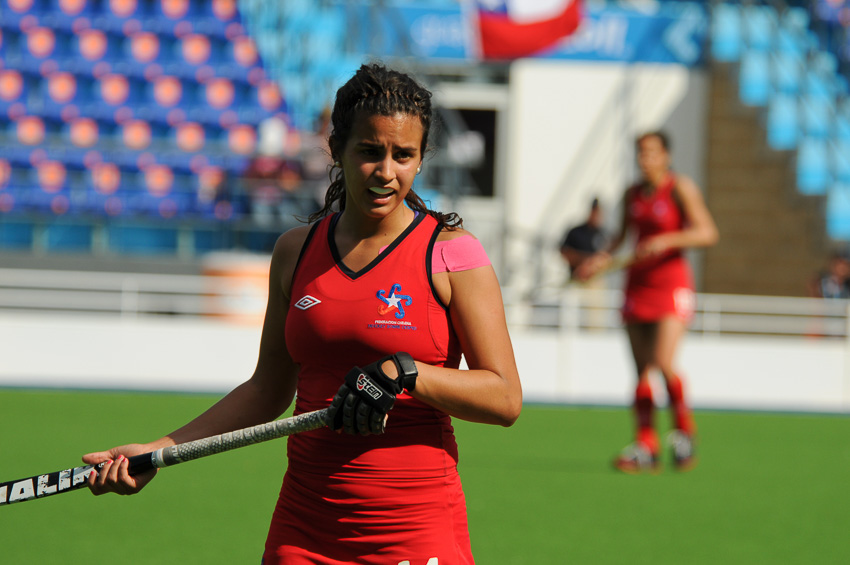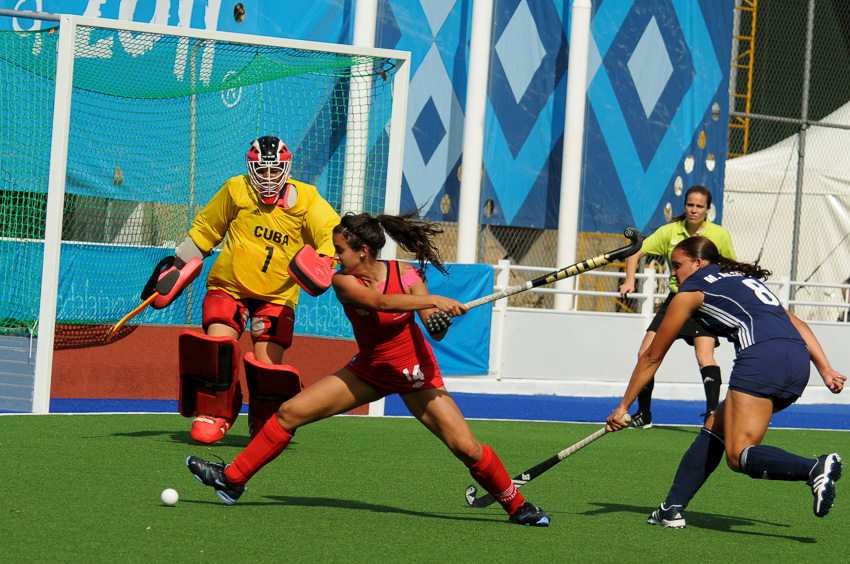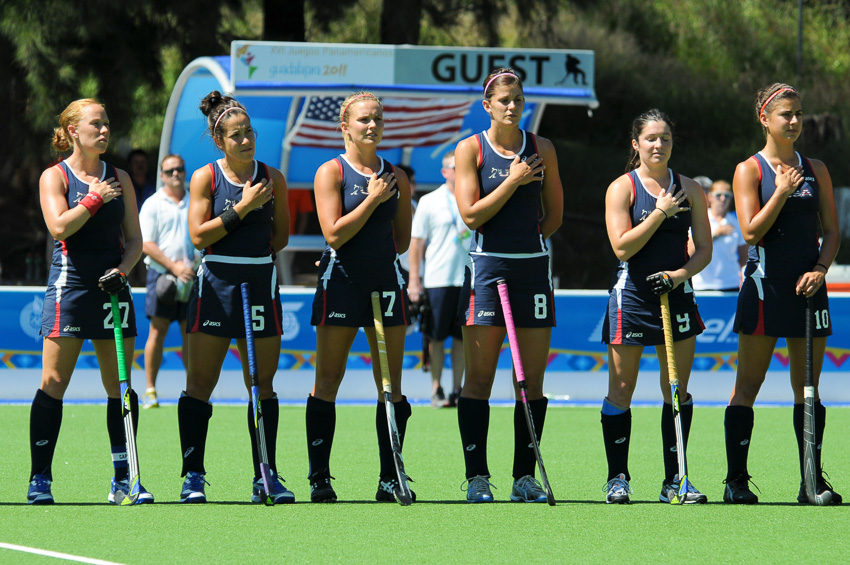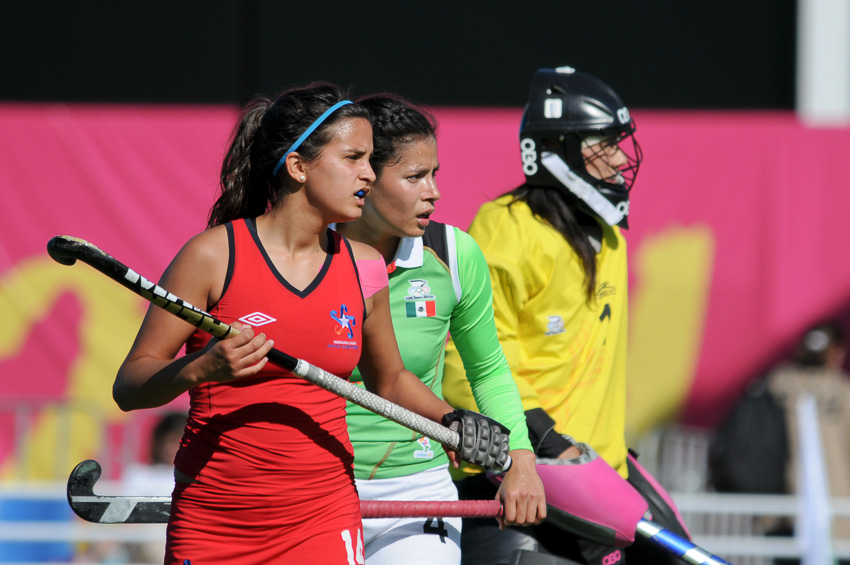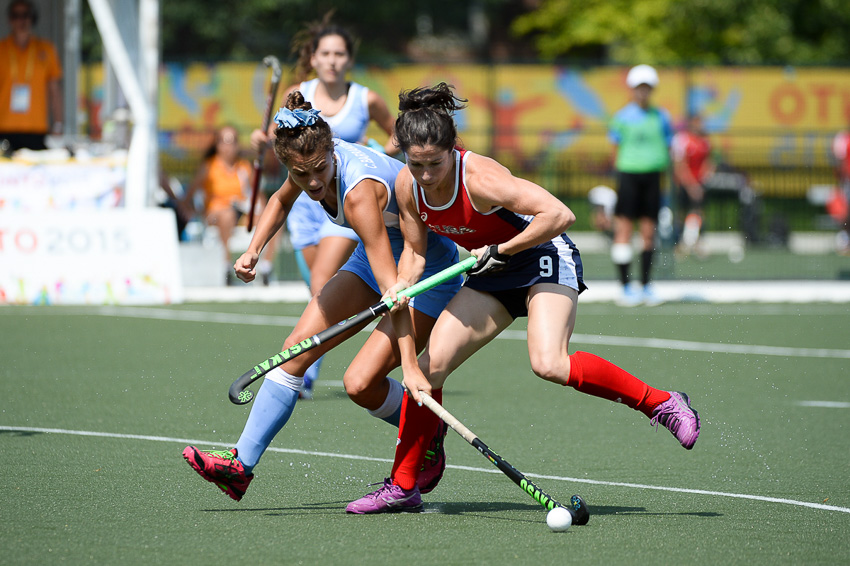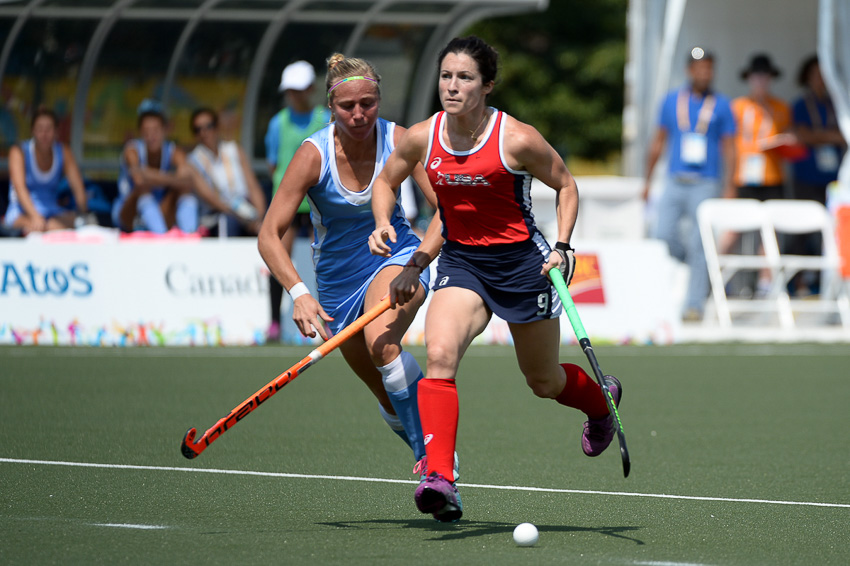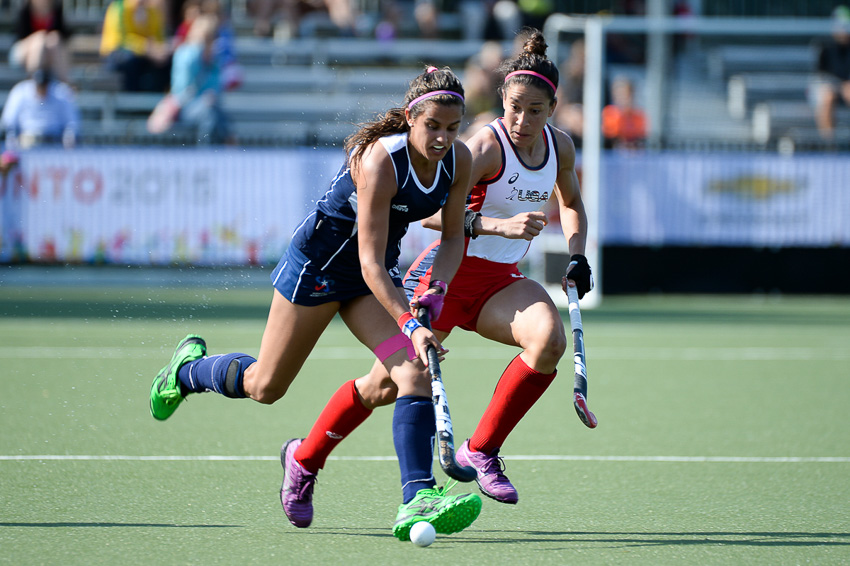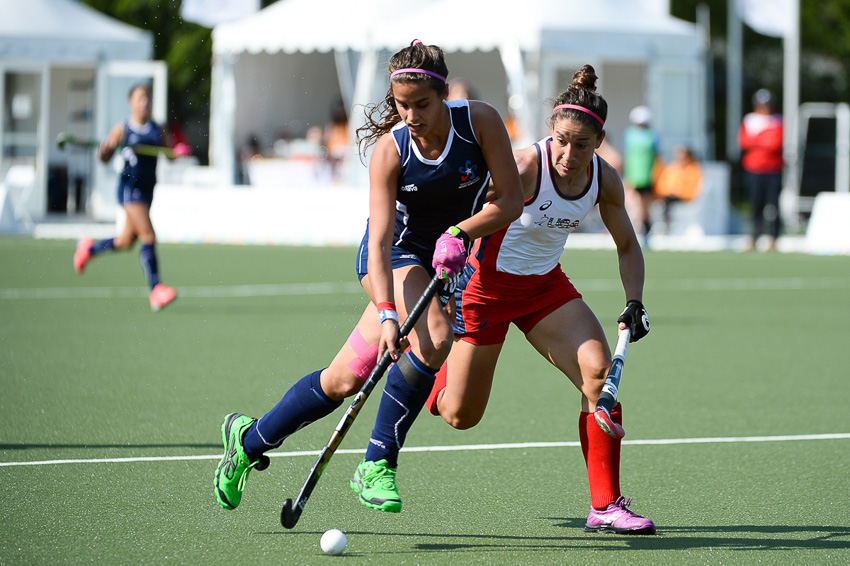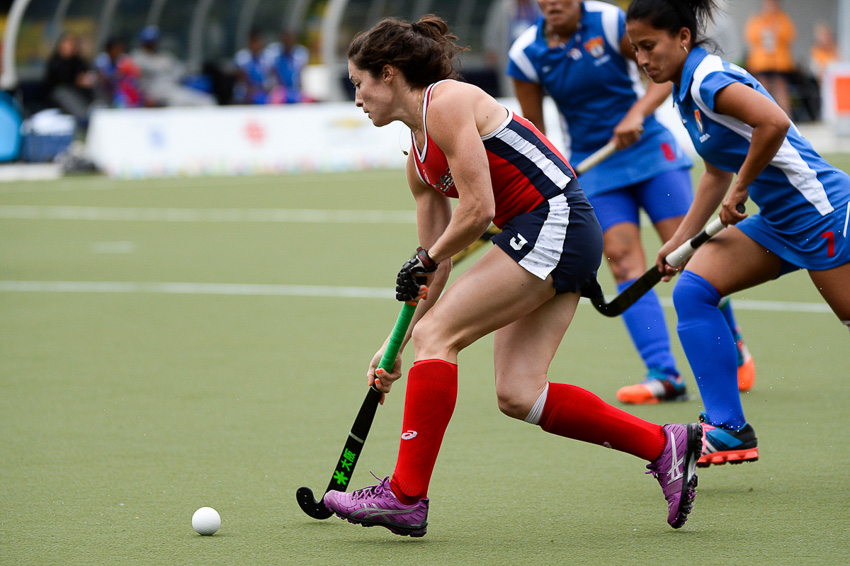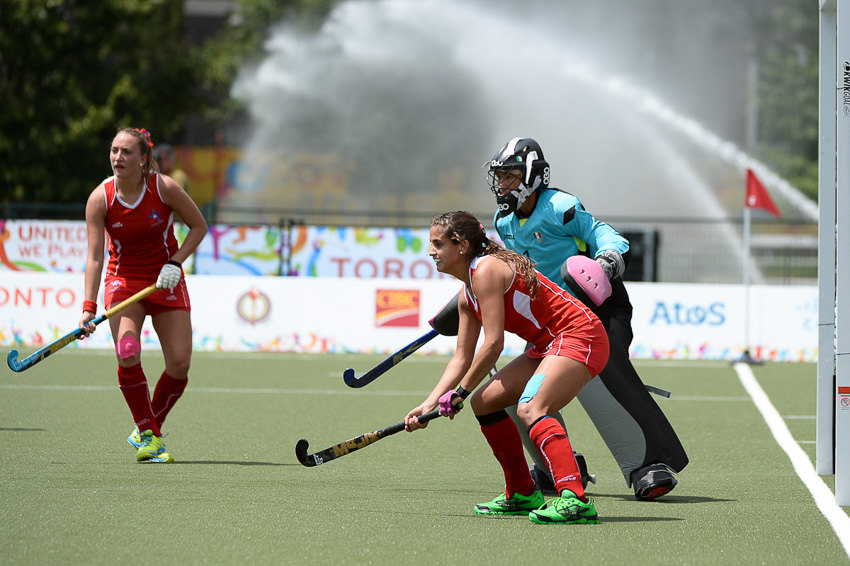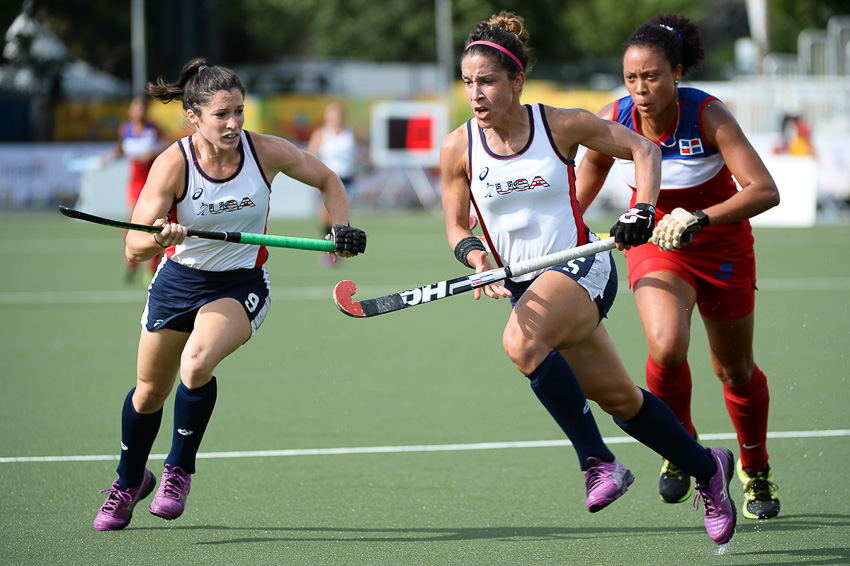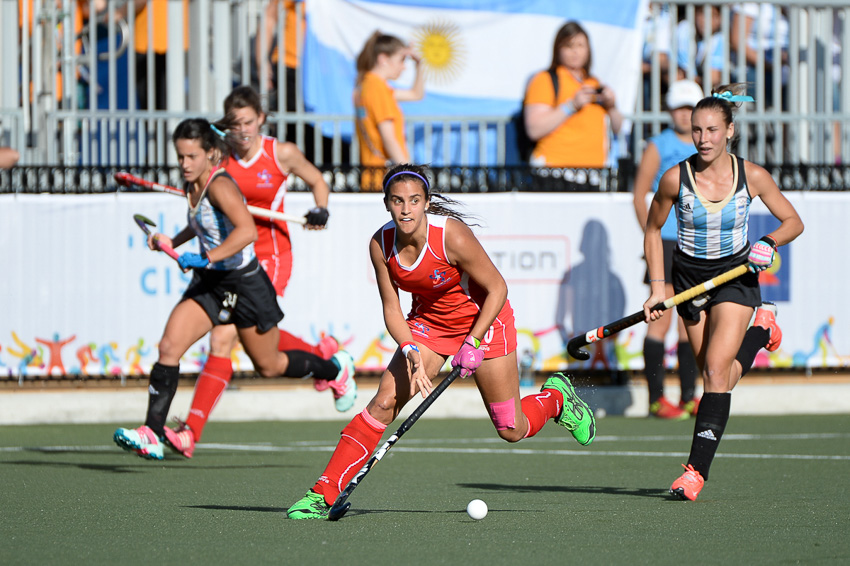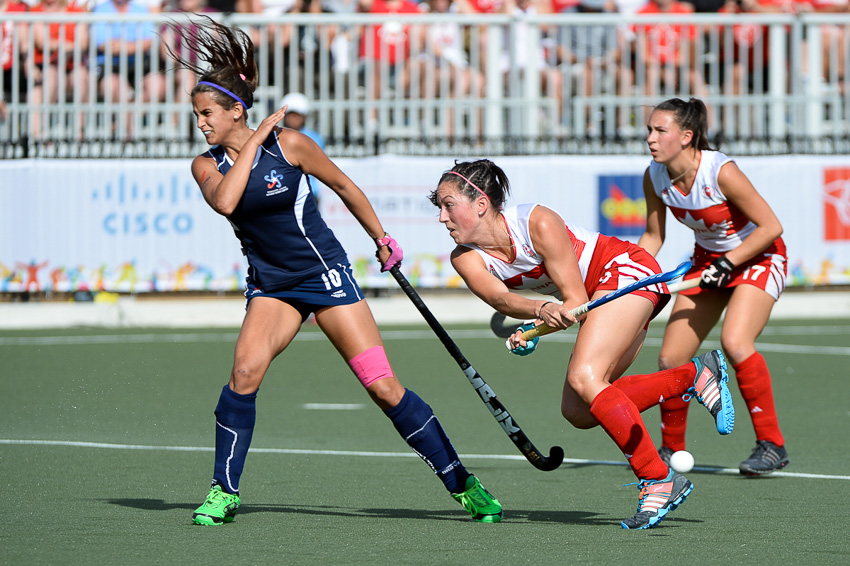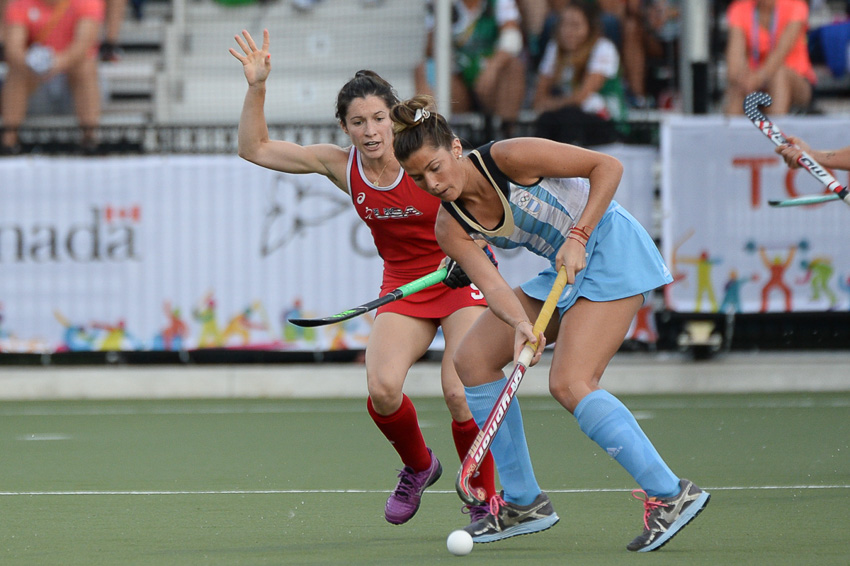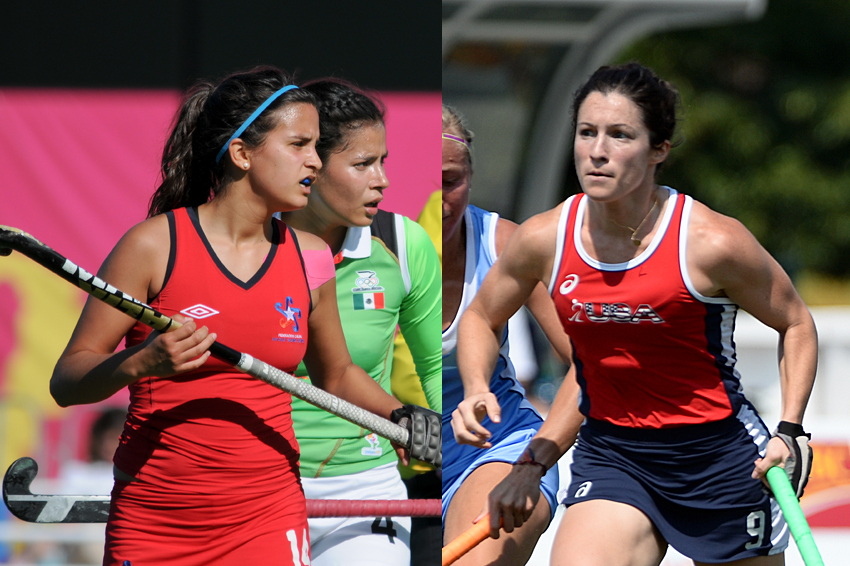
With the start of the Women’s Junior World Cup just a few days away, we caught up with two athletes who have made hugely successful transitions from the junior international scene to the senior stage. Manuela Urroz is a striker for Chile and helped secure a place for her team in HWL Round 2 for an ever-improving Chile team, while Michelle Vitesse was one of the forwards who set the Olympics alight in Rio, when USA got off to a blistering start in the pool matches.
Both players are stalwarts in their senior teams and have experienced all the pressure and excitement that international hockey brings. Indeed, Manuela’s hockey career has taken her far away from home as she now plays for the Belgium club team Royal Antwerp, but Michelle and Manuela both recognise that playing in junior international competitions was a great springboard and grounding for a career as a senior international.
That said, both women also point out that the step from junior to senior status is a huge one. For Michelle, the two teams are incomparable: “Personally, I have had a much different experience competing for Team USA (senior team). I have learned to appreciate my choice in lifestyle and am very grateful to be able to compete on the international stage with a team of incredibly powerful women.
“Choosing to be fully committed and to buy into the team-driven culture that we've created within USA Field Hockey is unlike anything I've ever been apart of and I cannot even describe to you the feeling it gives me.”
For Manuela, her experiences of the junior team changed over time and her progression from junior to senior has been more gradual than Michelle’s. “For the first Pan American Junior Cup I was barely 17 so everything was new for me. We had a great tournament beating Argentina for the first time in history and we reached the final. Although we lost the that game against USA, it was amazing to play a Pan American final. We worked hard for that.
“My second Pan American Junior Cup was in Guadalajara in 2012. This was very different as I was far more experienced. I became 21 during the tournament and had played more than 50 matches with the senior squad. I tried to share that experience with the younger players.”
Both women also share the honour of being part of teams that have beaten the mighty Argentinians. Chile’s moment, as Manuela referred to, came in the 2008 Pan American Junior Cup semi-final, when Chile beat Argentina 3-1 to book a place in the final against the USA. The score at full-time was 1-1 and then Chile hearts were broken when USA won in extra time. That year was the only time that Argentina had failed to win the Junior Pan American Cup.
Michelle has been part of the team that has broken the Argentinian hold on the Pan American Games on two successive occasions (2011 and 2015). On both occasions, the tournaments doubled as Olympic qualifiers and on both occasions USA went into the matches as the underdogs based on their world rankings.
With the Women’s Junior World Cup taking place in Santiago, the young Chile side will have all the benefits of a vociferous home crowd. This is something Manuela sees as a real plus: “I´ve been lucky to play two big tournaments at home: the World Cup Qualifier in 2010 in Santiago and Odesur 2014. It was exciting and very special to have my family and friends cheering for us.”
Now a seasoned international, Manuela made her debut for the junior team at the 2008 Pan American Cup. The 17 year old took to the pitch against Trinidad and Tobago in a state of nerves and excitement, but she quickly settled into the match and scored the opening goal in a 5-0 rout against their Pan Am rivals.
It was just one year later that Manuela made her debut for the senior squad. This was against the much higher ranked South African team in the Champions Challenge I, a match that Chile lost 1-0. This was two months after Chile had contested the Junior World Cup in Boston – where they finished 12th out of 16 teams.
And four years later, at her second Junior Pan American Cup, Chile finished fourth. It wasn’t the result the team wanted but there was a silver lining for Manuela as she finished top scorer.
She says that her experiences with the junior side gave her a great grounding for her senior career. “For my first senior matches I was really excited and open to learn about everything.
“I felt lucky to be sharing the pitch with players and a team that had been fighting together for years to achieve the same purpose. It wasn’t difficult to become part of it as all the seniors helped a lot. The main difference between junior and senior level is that higher level of professionalism that the senior players and staff bring to the team.”
Chile come to the Junior World Cup with some serious levels of experience under their belts. Manuela singles out a few players she thinks will make a big impact for the home side: “I think Denise Krimerman will be the leader and a player to watch with her strong passes and great defensive play. Also, up front Josefa Salas and Kim Jacob have senior experience and are skilful in front of goal.”
Michelle Vitesse’s own memories of the Junior World Cup, in Boston 2009, are happy ones. “I remember the Junior World Cup as being a lively atmosphere. I was very proud to represent my country and further to be able to do so on American soil. Boston was a fantastic host city, and I was proud to be able to wear USA colours to compete.”
Michelle has been a member of the national hockey set-up for so long she struggles to remember her debut, saying she “thinks it might have been a trip to Buenos Aires while I was in a senior or junior high school.” She does remember her first major tournament as a junior international was the Junior World Cup: she had missed out on the Pan American Cup earlier that year through a knee injury.
Now, with more than 150 senior caps to her name, Michelle is an established member of the national side. She won her first senior cap in Valencia, Spain in 2011 – the first time she had played on a blue pitch. Since then, she has played in two Olympic Games – Rio and London – and the 2014 World Cup in the Hague, plus the Champions Challenge, Champions Trophy and the Pan American Games, where she was part of the team that beat Las Leonas in both the 2011 and 2015 final.
She reflects back over her career to date. “My standout match to date is probably the last international match I played in, against Germany in the quarter-final of the 2016 Olympics. I remember it because it was the hardest I've ever taken a loss in my entire life. On a more positive note, the entire 2016 Olympic Game experience was incredible and I appreciate every moment I get to wear the USA kit; it makes me tremendously proud.”
One of the standout qualities that makes Michelle Vitesse such a force on the hockey field is her ability to just keep pushing her limits, this is a quality she took with her through the transition from junior player to senior: “I quickly learned that nothing will ever be given to you. I learned that in order to make an impact you have to fight and compete for every single second of each game. I learned that the game moves very fast, which means your brain has to think even quicker. I learned that confidence and belief in your own ability will take you a long way. I wouldn't say I was surprised, because I was expecting it to be very difficult - but nothing worth your time, comes easy.”
And the double Olympian is generous in her praise of those coming up through the ranks. “I remember watching our U-21 USWNT compete in the last Junior World Cup and thinking that there were some exceptionally skilled individuals competing. I personally think the U-21 USWNT has some talented youngsters. I think the future looks bright for both the junior and senior players with talent such as that coming through the age groups.”
The Women’s Junior World Cup begins on 24 November when USA face Zimbabwe and Chile take on England.
